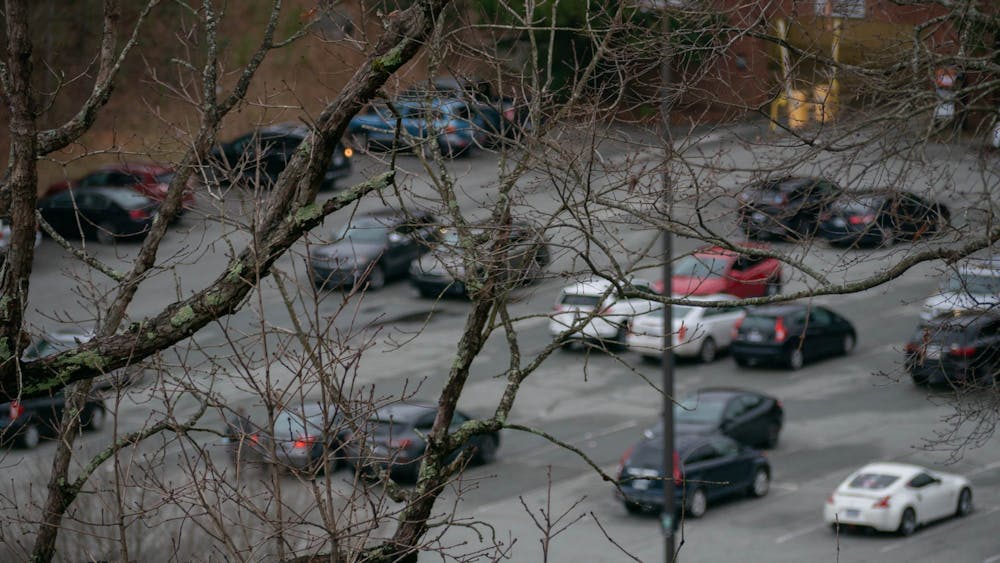In comparison to numerous other cities and towns in the state, Chapel Hill and Carrboro have ample parking relative to their population size.
Chapel Hill has 4,500 total parking spots and a population of more than 62,000, which would mean that available parking could serve around seven percent of the population at once. In Carrboro, the available parking could serve 17 percent of the population at once.
In Greensboro, only two percent of the city's population can park at one time — and in Boone, it's three percent.
These percentages reflect both public and private spaces. In downtown Chapel Hill and Carrboro, 31 and 19 percent of parking spaces are public, respectively. Public parking is that owned by the municipality and not by a private entity. However, public parking does not necessarily mean it is free.
Jeri Lynn Schulke, the executive director of Chapel Hill Downtown Partnership, said it is a myth that Chapel Hill has too little parking. She said parking availability may have been a problem in the past, and because of that, the idea of a parking shortage has become a part of the community's belief.
“If you’re willing to walk a block or two, you can get anywhere downtown and you can park and be there in a matter of minutes,” she said. “People walk that distance when they go to the mall.”
Jon Hartman-Brown, Carrboro’s economic development director, said some drawbacks of having more parking in downtown areas include economic and spatial costs.
In places that do not have many mixed-use complexes, like Carrboro, he said, more parking can be beneficial, especially to support businesses.




